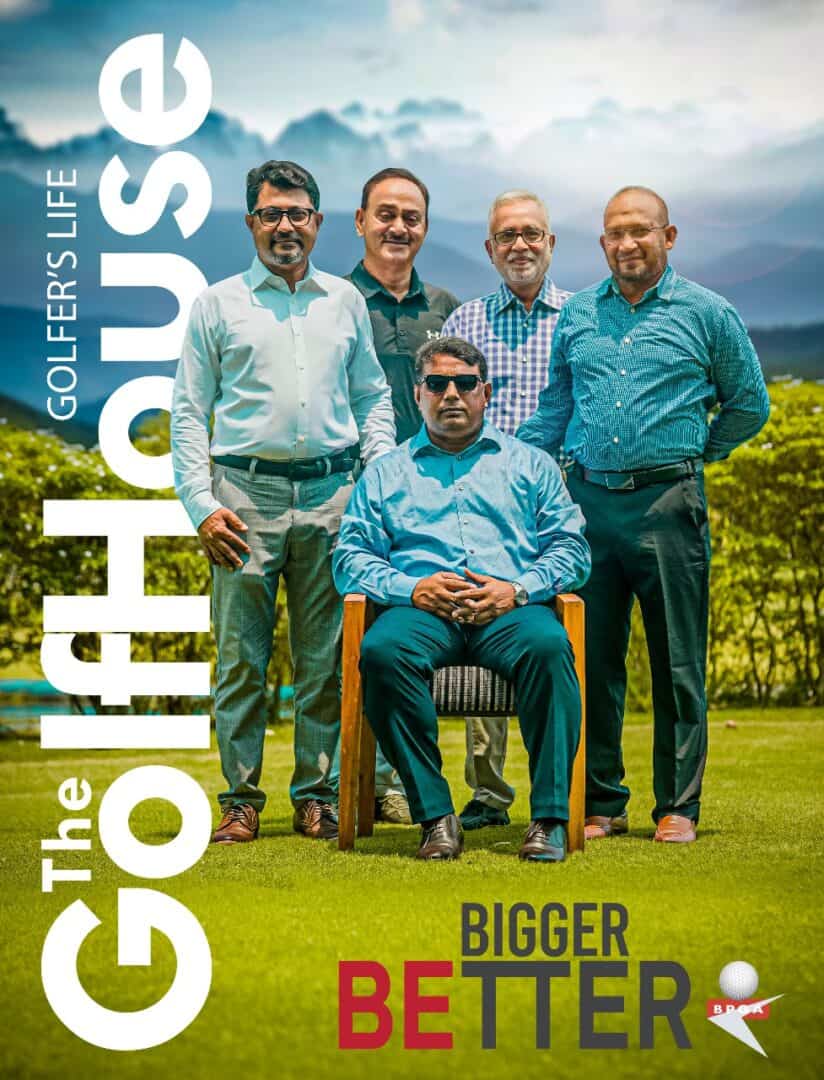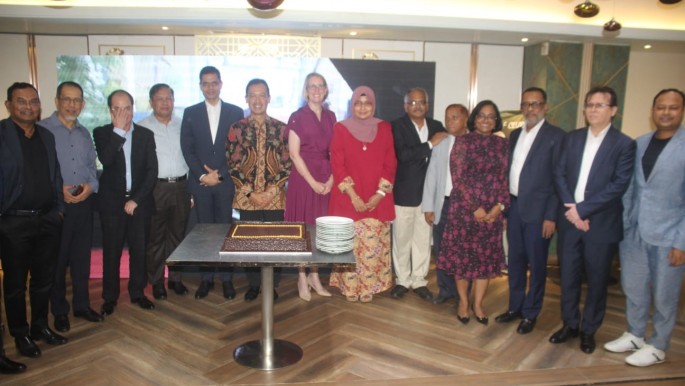Tanweer Hasan, PhD, is the Vice Chancellor of Independent University, Bangladesh (IUB). Educated at prestigious institutions in the USA, he has several decades of experience as a professor of Finance and Accounting. Balancing his role at one of Bangladesh’s top private universities, Professor Hasan passionately dedicates time to his favorite sport, golf. More than just an avid fan, he actively engages in the sport and enthusiastically shares its benefits with family, friends, students, and colleagues, with a track record of patronizing student golfers at graduate and undergraduate levels both in the USA and Bangladesh.
Could you provide our readers with a brief biography of yourself?
I was born in Dhaka and began my educational journey at Mariam School (Mymensingh), followed by Mymensingh Zilla School, Government Laboratory School, Dhaka, and Mirzapur Cadet College (erstwhile Momenshahi Cadet College). My pursuit of higher education took me to the University of Dhaka, where I completed my Bachelor of Commerce with Honor. I then earned an MBA from Baylor University in Texas, USA and a PhD in Finance from the University of Houston, also in the USA. Additionally, I have completed the Management Development Program (MDP) at Harvard University. I also hold several professional certifications in accounting.
 My professional career has been deeply rooted in the fields of finance and accounting, with contributions to academic literature, having published over 40 articles. My expertise has been recognized globally, leading to roles as consultant and visiting economist with various central banks, national entities, multilateral agencies, large exchange-listed companies in the United States and academic institutions.
My professional career has been deeply rooted in the fields of finance and accounting, with contributions to academic literature, having published over 40 articles. My expertise has been recognized globally, leading to roles as consultant and visiting economist with various central banks, national entities, multilateral agencies, large exchange-listed companies in the United States and academic institutions.
On a personal note, I am a proud father of two wonderful children, Neal and Rhea Hasan, who both share a passion for golf with me. Their achievements and interests add joyful dimensions to my life.
You are probably the only vice chancellor of a university in our country from the golfing community. What are the highlights of your days as a golfer and as a vice chancellor?
I’m not certain if I’m the only Vice Chancellor in the country who golfs, and frankly, it’s a moot point. What I can attest to is the positive impact golf has on my day: a morning round sets a smooth tone for the day, while an evening round keeps me motivated throughout the day in anticipation, as I look forward to it.
When did you start golfing and who introduced you to the game?
In 1994, a colleague named Dr. Deepinder Bajwa first introduced me to this game while I was working in North Carolina, USA.
Which one is your current golf club in Bangladesh?
Savar Golf Club
When you visit a golf course, what is the first thing you notice?
When I visit a golf course, the first thing that captures my attention is the quality of the fairway, with a specific focus on the putting green. The condition of these areas is essential for a good game, and it speaks volumes about the overall maintenance and standards of the course.
To date, what is your proudest golf accomplishment?
I broke 90 several times in one season.
Which are your favorite golf courses abroad?
Himalayan Golf Course, Pokhara, Nepal, New South Wales Golf Course, La Perouse, Australia, Pebble Beach Golf Links, Pebble Beach, California, USA
Did you pursue any other sport before coming to golf?
I played different sports at different phases of my life.
 What is your golfing routine?
What is your golfing routine?
(i) Banana, stretching and banana
(ii) Hit 20 balls in the driving range before the round
(iii) Spend 10 minutes on the practice green
(iv) Take a practice swing before each shot during the round
Which one is your favorite club in the bag?
Fairway Wood # 3
Who are your favorite golfers?
Greg Norman, Nick Faldo, Tiger Woods, and Jordan Spieth
What course is on your bucket list that you have not played in yet?
Verdura Golf and Spa Resort, Italy and Cape Kidnappers Golf Course, New Zealand
How do you see golf as a medium to promote Bangladesh as a premium golf tourism destination in future?
Golfing in Bangladesh is a hidden gem with immense potential. Despite its obscurity in the global golf scene, Bangladesh boasts several exquisite 18-hole and 9-hole courses, comparable to those in well-known golf-tourism markets. With a good number of 9-hole and 18-hole golf courses, the country offers varied golfing experiences. The Kurmitola Golf Club in Dhaka, noted for its excellent maintenance, Bhatiary Golf & Country Club and KEPZ Young One Golf Club in Chattogram, renowned for their panoramic views, stand out as 18-hole courses. These courses provide experiences comparable to the well-known courses in the region. Furthermore, the 9-hole courses across the country cater to golfers of all levels with unique challenges and terrains.
 “The affordability of golfing in Bangladesh (from the perspective of tourism) is an attractive feature, with reasonable green fees including caddy services. Golf clubs offer excellent facilities, enhancing the overall experience for visitors.”
“The affordability of golfing in Bangladesh (from the perspective of tourism) is an attractive feature, with reasonable green fees including caddy services. Golf clubs offer excellent facilities, enhancing the overall experience for visitors.”
To fully realize its potential in golf tourism, Bangladesh needs to package and market its golf courses effectively. Developing the southern region like Chattogram, Cox’s Bazar and Ramu into a golfing belt could be a strategic move. The 9-hole course recently built in Ramu adds further to the already existing offerings in the southern part of the country. Engaging local youth in golf and nurturing new talents are essential for sustainable growth in this sector. By leveraging these assets, Bangladesh can emerge as a distinguished golf-tourism destination.
What is the biggest misconception that non-golfers have about golf in general?
The biggest misconception non-golfers often have about golf is that it’s a boring sport, reserved only for military personnel and the wealthy. Contrary to this belief, golf is an exciting, engaging and dynamic sport that welcomes players from diverse backgrounds, age and skill levels. Golfing can be addictive too!
 How can we encourage young people to start playing golf?
How can we encourage young people to start playing golf?
In the past, I have taken an active role in encouraging young golfers. I helped assemble a strong men’s golf team for Roosevelt University in the US. A couple of players from that team went on to win amateur state championships and are now in the process of turning pro. After returning to Bangladesh, I have already supported two students at IUB in the last two years, and we want to do more. However, we need to have a place for them to practice on the field. There must be some accommodating gesture to encourage young amateur golfers to play well, rather than completely relying on the pros who come through the caddies’ ranks. In addition, to encourage young people to pick up golf, we should provide access to golf courses during off-peak hours at a subsidized rate. This approach makes the sport more accessible and affordable, creating an inviting environment for beginners.
What is the future of golf in our country, according to you?
The future of golf in our country looks promising, as it’s gaining popularity with more courses being built. However, the key to its continued growth lies in making the sport affordable for a wider range of people.
Give us a lowdown on the IUB. Why should students come here to study?Independent University, Bangladesh (IUB) stands out due to its high-quality academic programs, substantial research grants, and strong industry-academia collaboration. Furthermore, concrete steps are taken to enhance the quality of student life at IUB and thereby, making IUB an excellent destination for higher education.
How does IUB differentiate itself from other universities?
IUB stands out for its vibrant student life, including diverse club activities, sports facilities, and a liberal arts-friendly environment. The university’s “Coding for All” initiative mandates computer and coding skills for all students, irrespective of their majors. Language learning opportunities in languages of emerging economies, such as Korean, Mandarin, Japanese, and French, are also a highlight.
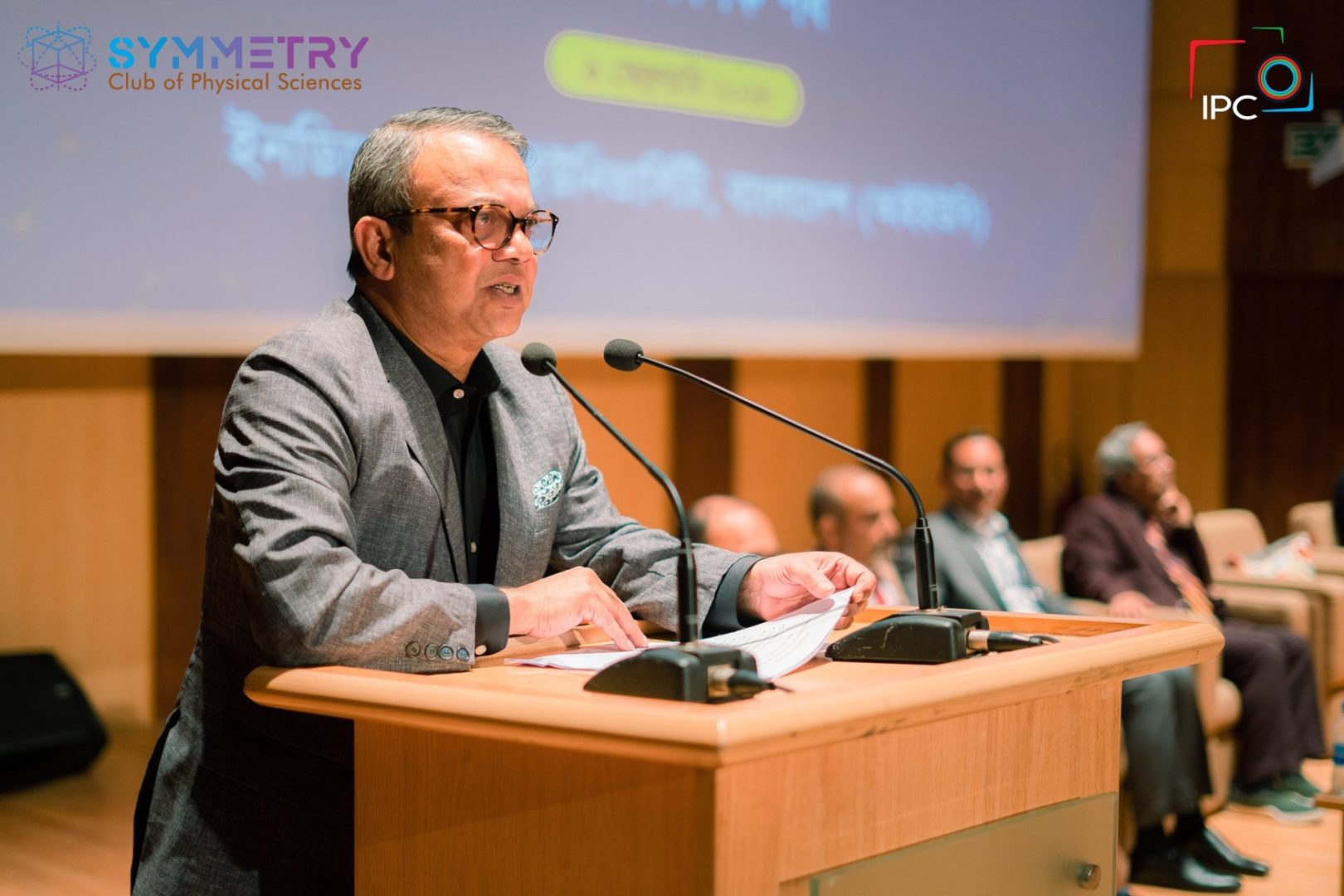
IUB is strategically increasing its female student population by creating a women-friendly campus and aims to be the trailblazer in gender equality in education in Bangladesh – about 49% of the last incoming batch at IUB is female. IUB offers a wide array of choices when it comes to academic programs and is also unique in some fields like astronomy and astrophysics.
Sustainability is a key focus, with efforts to build a green campus through sustainable practices. Also, the emphasis on international collaboration enriches the educational experience, preparing students for global engagement upon graduation from IUB.
What scholarships does the IUB offer for golfers/sports personnel?
IUB recently offered two scholarships to support the education of professional golfers – Md. Mahady Hasan (Shuvo) from Bangladesh Golf Academy (graduate) and Ahnaf Saadman. We are prepared to support more professional and amateur golfers in the future to pursue higher education at IUB, if eligible. We have also established a state-of-the-art squash court and facilities on campus, enrolling three young players on full scholarships. With squash debuting in the 2028 Olympics, our goal is for our students to represent Bangladesh and IUB at the Games.
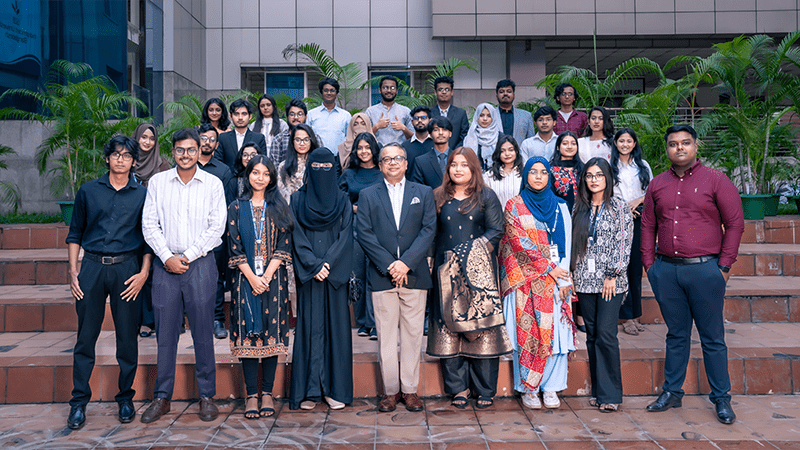
What is the vision you have for IUB going forward?
We aim to cultivate students who are rooted in liberal arts, technologically adept, globally aware, and environmentally conscious. We call them “The Four Pillars of IUB”. We desire our students to appreciate the finer things in life such as art and literature, be solution-driven with technological skills like coding, be globally conscious to be able to navigate foreign cultures with compassion, and play their part in protecting our planet, especially given Bangladesh’s vulnerability to climate change.
How did you first become involved in the teaching and education industry? What attracted you to it?
I started teaching O-Level Economics at Scholastica in my early 20s on a part-time basis while I was attending Dhaka University. This initial experience sparked my interest in teaching. Later, in 1990, as a graduate student at the University of Houston, I expanded into university-level teaching, in Finance. Upon graduation, I began my professorial journey in North Carolina as an Assistant Professor of Finance in 1993. The education sector offers a wonderful platform to share knowledge and engage with learners at different stages of their academic journeys.
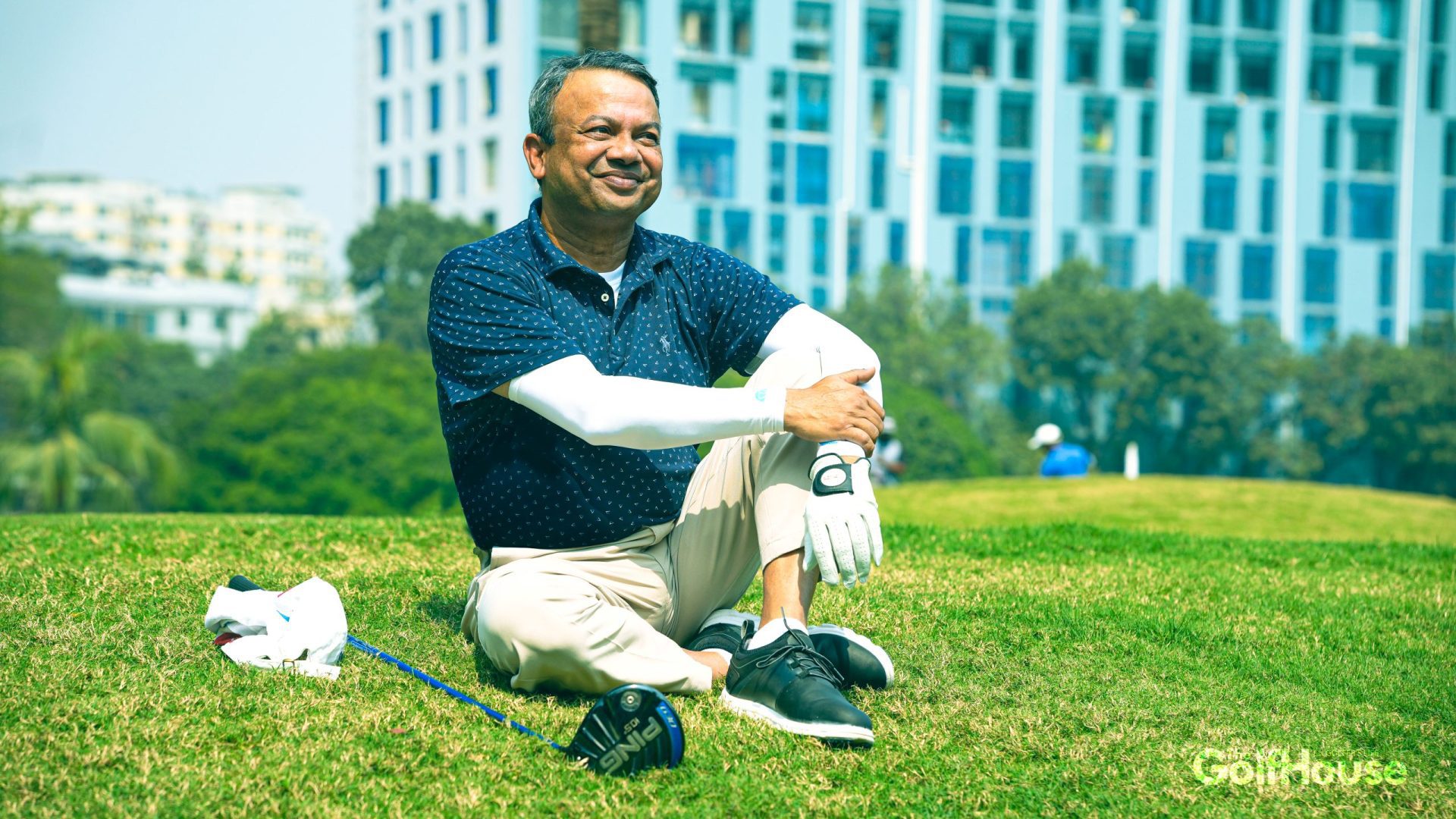 What is the secret to success in your career?
What is the secret to success in your career?
There is no secret, so to speak. I always focused on two key principles: commitment and perseverance. These qualities have been the cornerstone of my life journey, guiding me through challenges and towards achieving my goals.
Do you have a life lesson that you would like to relay to youngsters for their careers?
“Stay focused keep plugging-in. Life is not a race – it’s a marathon.” You will fall down many times in your journey. It is not important how many times you fall but what is important is how quickly you get back up on your feet and keep going.



